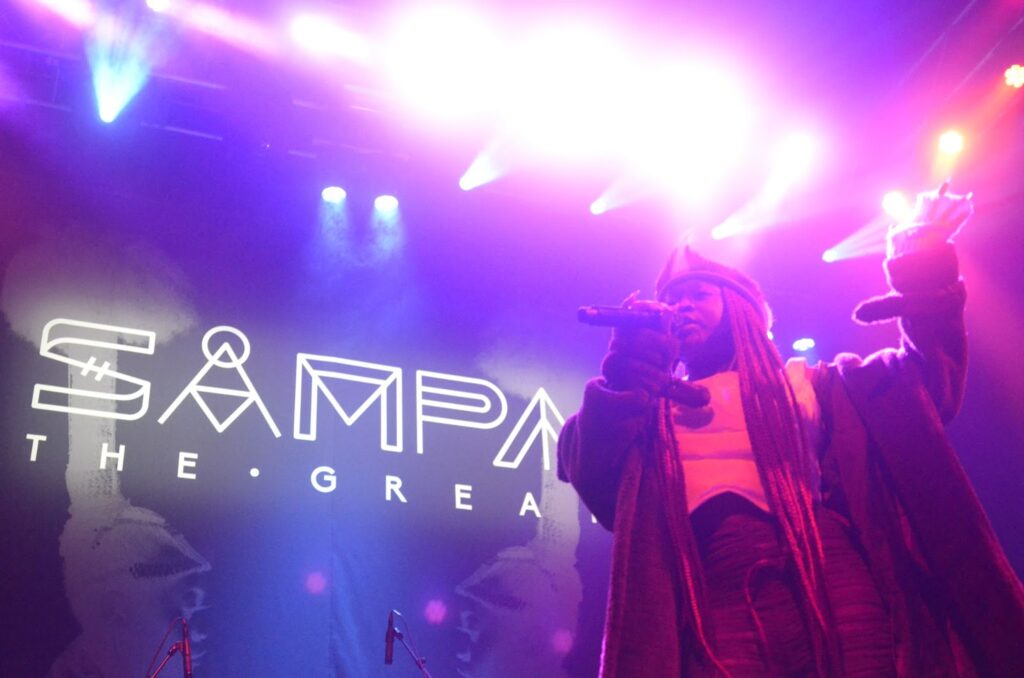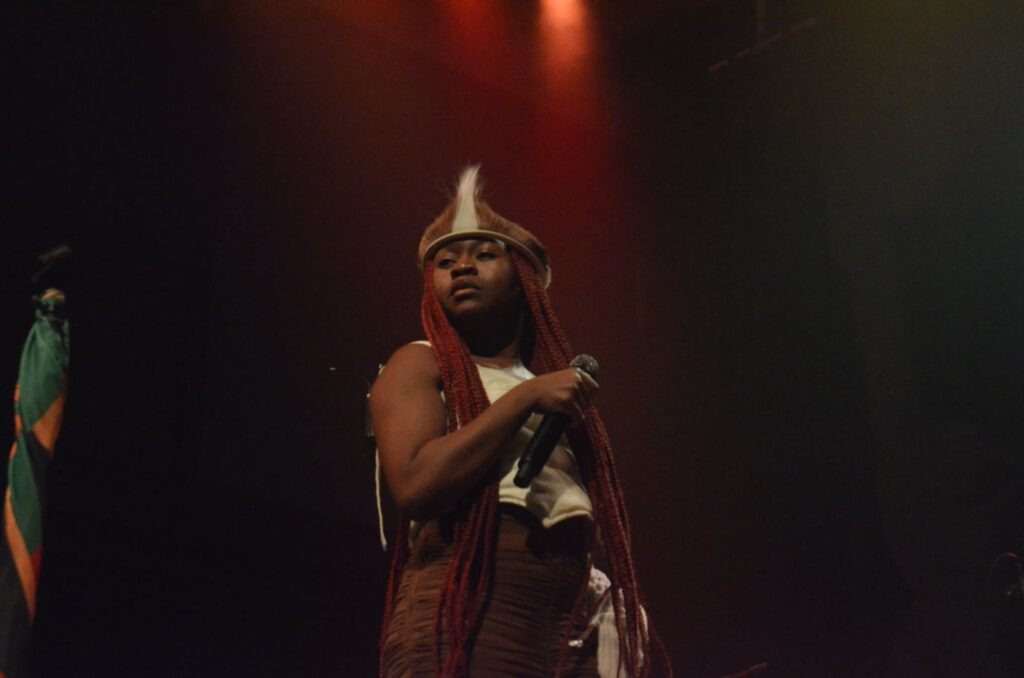
An award-winning international artist that has performed in the U.S., Africa, Europe, and Australia, Sampa Tembo is currently on her first international tour in the U.S. with an all-Zambian band that includes members of her family.
Tembo is due to perform at the Coachella Valley Music and Arts Festival in April 2022. A unique artist with an understanding of various cultures, Tembo uses her music to express the realities of life and humanity.
Tembo’s music has a theme of empowerment for Black women throughout the world, and unity for Black people. Born in Zambia, Tembo’s family moved to Botswana when she was one-years old, where she lived before relocating to the U.S. and Australia for her studies and to pursue a career in music.
Introduced to hip-hop at the age of nine, when she heard her cousin playing 2Pac’s song “Changes,” Tembo became interested and wanted to express herself the way the legendary artist did. Her official rap career was ultimately inspired by Lauryn Hill, as Tembo began rapping in high school.
In the early 2010s, Tembo studied music and visual media at the Academy of Art University in San Francisco to become a director. While in America, Tembo saw how the world viewed her as an African and recalled that she did not write while in the U.S. as she experienced what she described as self-development.
Tembo ultimately moved to Sydney, Australia, in 2013 to complete her degree in audio engineering at the School of Audio Engineering Institute, and her musical career took off shortly after. Based in Melbourne, Australia, until 2018, Tembo released her debut album “The Return” in 2019, before returning to Zambia during the global pandemic to record her upcoming album.
Tembo spoke with The Hilltop after her performance at the 9:30 Club in Washington, D.C. in March.

What are you most looking forward to during this tour?
Exposing my band and my family to music life outside of our country. I say at my shows “our industry isn’t huge,” so this is a big opportunity for us. After “The Return” I didn’t get to tour, so seeing people’s reactions, and the different demographics who come to shows has been really profound. It’s always amazing to see how far the music has reached.
How was the process of making the album?
It has been the fastest album-making process ever: two weeks. I think it’s because of Mag44, who is a Zambian producer that I wanted to work with for a long time. He’s part of a crew of artists who opened doors doing different types of music in Zambia that is not solely traditional or in English. It was important for me to know that I’m doing international, African-American music, but I’m still bringing my culture forward. We want to expand “hybrid music,” which is a mixture of the music you’re inspired by and the music you grew up listening to.
How do you feel about your African identity, considering human rights movements around the world dedicated to Black liberation?
I’m very solid in my Zambian and African identity, especially after relocating home for two years. I think Australia was different because I had to represent a community of Black and African people that I was just learning about, and my identity was pushed to the side to push this “Australian, multicultural” theme that they were going for. Africa is not one thing and African music is very vast with different countries, ethnicities, languages, and dialects.
What has the world yet to learn about the multiple styles of African music?
African music has range. Commercially, the global market has been exposed to Afrobeat music. A big door was opened by our brothers and sisters in West Africa, but that’s not the only style of music within Africa. I hope it gives a way to more African styles to be seen and heard.
What should the global community know about the experiences of African women in the modern world?
A good example is the conversations I have with my mom. I represent modern African women, while she represents traditional African women. The modern African woman has a voice, independence, wants to create for herself, and earn money so she doesn’t depend on anyone. There’s not one way to express being an African woman. We don’t have to wear traditional clothes or braids, it’s the human being who is the embodiment of an African woman. Also, African women experience intensified marginalization. Not only am I a Black woman, but I’m an African woman, so I’m from a “third world continent”. I think African women are super vocal in this era and we’re not letting being Black, a woman, or African to be considered as our downfall.
Copy edited by Jasper Smith

